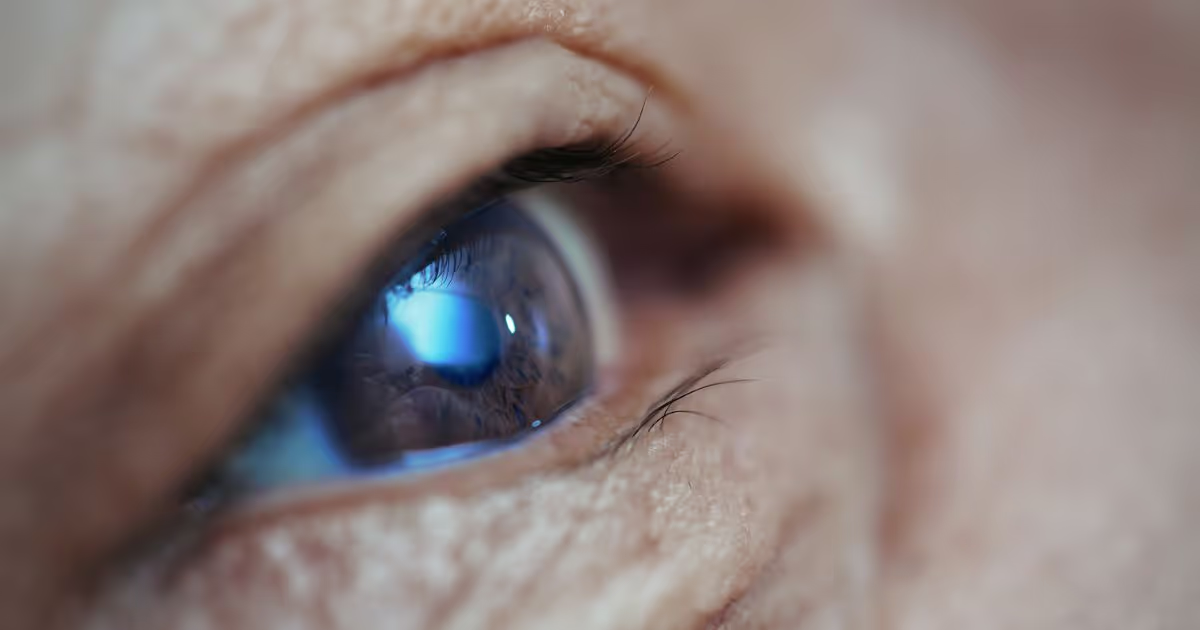Eye floaters
Eye floaters occur when the vitreous, the gel-like fluid in the eyes, starts to shrink due to old age, forming tiny particles in the eyes. These specks can drift around in your eyes. If they move in front of the retinal macula, you can see them. Eye floaters are common in older persons. They can develop in one or both eyes. Treatment is not always necessary because eye floaters can eventually sink to the bottom of the eye and become less noticeable over time.
However, if you see a sudden increase in flashes and eye floaters, it can be a sign of retinal detachment, which is a severe eye problem. You should consult your doctor immediately.
Symptoms
Even in healthy eyes, you can develop eye floaters as you age. You will see
- Tiny shapes, such as dark spots or a transparent thread that persists when you blink or look away.
- Specks that are most apparent when looking at a white wall, blue sky, or other plain bright backgrounds.
- Flashes like bolts of lightning or camera flashlights, especially in dim or dark areas.
Eye floaters can occur in both eyes. However, they may affect one eye initially because each eye may degenerate unevenly. The vitreous in one eye shrinks faster, so you may see floaters in that eye first.
When to see a doctor
Immediately seek medical care if:
- You develop many new floaters.
- You see flashes of light or have a blurry area, a gray curtain blocking your vision.
- You have peripheral vision loss.
Though these symptoms are painless, they may signify a retinal tear or detachment, which is detrimental to your vision. You should see an ophthalmologist to have your eyes checked.
Causes
- Age: As we age, vitreous fluid starts to shrink, creating specks or debris floating in the vitreous fluids known as eye floaters. Over time, these eye floaters will sink to the bottom of your eye, and your brain learns to adjust and ignore them.
- Diabetic retinopathy: This is a less common cause, but you may see dark streaks because blood from the retina diffuses into the vitreous.
- Uveitis, though it is less common.
Risk factors
- Older ages (over 50 years old)
- Nearsightedness
- Diabetes
- History of eye surgery or eye injuries
Diagnosis
A dilated eye examination checks for eye floaters and if there are retinal tears or detachment.
Treatment
Often treatment for eye floaters is not necessary as they do not interfere with your vision. Your brain can learn to ignore them and adjust accordingly. Consult your doctor if eye floaters start to disrupt your vision though this is rare. Your doctor may suggest treatment options, such as surgery and laser, which are rarely required.
- Vitreous surgery: A vitrectomy to remove the diseased vitreous and replace it with electrolyte solutions to maintain the eye shape. The surgery does not prevent the development of new floaters; it involves a risk of bleeding, cataract, infection, and retinal tears.
- Laser disintegration of eye floaters: Vitreolysis uses a special laser to break apart eye floaters and make them smaller; so, your eyes do not notice them. Some people say they have improved vision, whereas others do not experience any differences. Laser therapy can cause retinal damage if not performed correctly.
Although eye floaters may persist, they are usually harmless. However, if you notice them or have sudden vision changes, you should consult your doctor immediately. Some changes, such as spots in your visual field, can be signs of other medical conditions, including stroke, diabetes, hypertension, and multiple sclerosis.
An annual eye checkup can help detect any sight-threatening disease and to receive proper treatment at the earliest.








